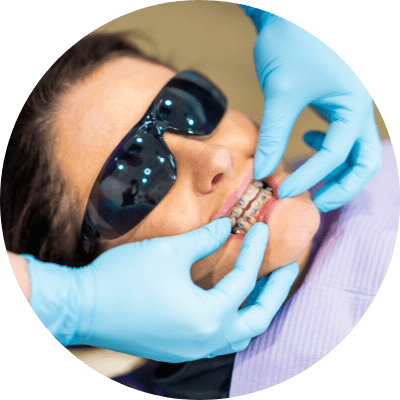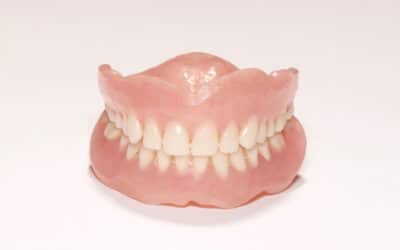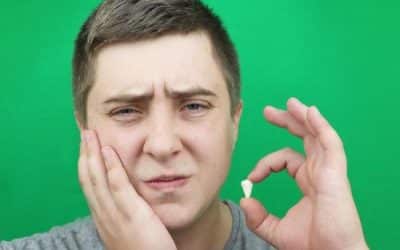What’s With Teeth Terms? Mulberry Molars? Flux? Butterfly? Cauliflower? Tombstone?
What’s With Teeth Terms? Mulberry Molars? Flux? Butterfly? Cauliflower? Tombstone?

It’s often supposed that the roots of English are predominantly Greek and Latin.
Understandably so. Words are assimilated into the language from other dialects as well, like French and Arabic. From the approximately 170,000 English words currently in use, around 41,000 are Greek in origin.
The ancient Greek word for ‘tooth’ is odóntos and not too different from the Latin. ‘Straight’ in Greek is orthós.
The beauty of words, their sounds and the familiarity of letter combinations is that you’ll no doubt figure the rest.
Those numbers may surprise native English speakers.
And frazzle those trying to learn it.
It’s a complex tongue, and one of the most difficult to absorb as a second language. Native English speakers often overlook how lucky they are in the linguistics stakes.
The 20-volume Oxford Dictionary lists 171,476 presently active English words, to be exact; as well as 47,156 deemed obsolete. There’s no denying language is an evolving entity. The many superseded words include those we still use, with spelling that we don’t: itsself, marster, dixnary are but three.
In a world of Siri, Alexa, LOL, and autocorrect “they’re” examples may confound the non-spellers among us.
Orthography is not a word you’ll generally come across.
Aside from the possibility of a pub trivia question or the answer to a crossword clue, the word that defines the branch of knowledge centred on correct spelling is not often seen written down.
More than that, it’s a word derived from 13th century Old French (ortografie) from the Latin ‘orthographia’; nicked from the Greek orthos (meaning ‘correct) and graphein, which refers to writing and written characters. Its earlier connotation was ‘to draw; represent by lines’ after its original definition ‘to scrape or scratch’.
In the realm of proper spelling, seems we’re right back to the scraping and scratching.
Briefly, for those who may be ambiguous about its worth, part of orthography is orthographic mapping. Words are not learned as a whole, but are instead automatically broken down into sounds and letter configurations.
Particularly with English, not all words follow phonetic presuppositions. It’s what makes it such a challenge to learn, and why the pronunciation of particular words is so hard to remember for non-native speakers.
For instance, consider the high frequency word ‘said’.
The middle section doesn’t follow the phonic rule of ‘ai’ equalling a long ‘a’ sound – as it does in gain, main, explain etc.
So while the letters ‘s’ and ‘d’ and d map as expected, the ‘ai’ does not.
A skilled reader breaks the word into three parts (s-ai-d) hears it in their head, makes the appropriate adjustment for the sound, and it’ basically imprinted like that.
The difference between a skilled reader and one lacking that ability is the latter doesn’t have that automatic sound-spelling process.
They essentially rely on context and guessing for words they don’t know. It creates a communication complication for them (and others sometimes), which makes reading unpleasant, and that mapping process is never completed.
It’s not just about the spelling. All that goes on in our brain is never compartmentalised. Everything’s connected. And orthology is about fluency, enjoyment, knowledge and adventurous curiosity.

If it were a dental patient, orthology is the one that doesn’t have to think twice about regular appointments, the one that the consistency of contact with their dentist means that they don’t have any oral issues. They enjoy good dental health, and are keen and curious to maintain that.
Lack of accuracy in spelling could be the link between the difference in the way younger generations now think, in comparison to those of the same age group in the generations that required a level of skill.
Surprisingly, it matters very little in quite a few areas.
Spelling errors don’t count in essay exams (quelle horreur!) or standardised tests.
In stark contradiction, however, the consequence of submitting a job application with incorrect spelling is just as detrimental as not having the relevant work experience. It’s often what has candidates not make the shortlist. Could it be that they’re deemed too lazy to use spellcheck?
It’s really hard to know, because in contrast to that initial contradiction, poor spelling is rarely judged harshly in the work environment.
How do you get the job in the first place?
And yet, in this snake-eating-its-tail situation, incorrect spelling is considered unprofessional and unacceptable.
Academic research is scant and somewhat conflicting in terms of how much it matters in relation to being taken seriously at work.
You might want to ask 116 highly trained Italian soldiers about that.
In 2000, an instructional spelling error had them to arrive for NATO exercises in the wrong country.
The crack troops landed in Kristianstad, Sweden rather than 400km away in Kristiansand, Norway, where they were supposed to be.
A simple mistake one might think. Possibly after having to read that last sentence more than once to identify the error.
What is comes down to is the speed and the detail that skilled readers and spellers perfect.
A missing comma cost Oakhurst Dairy, Portland USA, $US10 million in 2017. We definitely had spellcheck then.
The contract under scrutiny defined the tasks excluded from overtime payments. In the class action brought about by 75 of its drivers, Judge David J Barron opened his observations with: “For want of a comma, we have this case.”
Grammar matters. The sign ‘Stop falling rocks’ has a completely different meaning to ‘Stop. Falling Rocks’. As does ‘Slow Children at Play’.
If it meant what it said, parents would be frantically having their kids tutored in orthography.
Without that complex, and complete contextual understanding of words and the power they have, the term ‘butterfly teeth’ makes no sense at all.
Nor does ‘tombstone teeth’ have the cognitive relationship with monodontia that there should be. It becomes a challenging concept for mulberry and cauliflower to be anything but edible, when they are in fact types of teeth as well.
And flux. It’s a tooth disease. It’s also defined as the process of continuous change. It’s a substance added to metal to make it easier to solder.
Let’s put the pedal to the metal with marching proper spelling back into the skill set drill. We don’t have to of course. We can solder on without it just like a NATO exercise.
Post-script: What are ghost teeth?
Teeth in a region or quadrant of maxilla or mandible are affected to the extent that they exhibit short roots, wide open apical foramen and large pulp chamber, the thinness and poor mineralisation qualities of the enamel and dentine layers have given rise to a faint radiolucent image, hence the term “Ghost teeth”.
Note: All content and media on the Sunbury Dental House website and social media channels are created and published online for informational purposes only. It is not intended to be a substitute for professional medical advice and should not be relied on as health or personal advice.
Services Mentioned
Related Articles
What If You Could 3-D Print Dentures?
3-D printing is taking the world by storm. What if you could 3-D print dentures? Well, you can, and clever people are already doing it. In 2021, an article in a leading Perth newspaper featured a story on this very topic and claimed a local dentist as the sole...
Braces After 50: Getting the Right Bite
It’s difficult to know which is better: having braces in your teens, or braces in middle age. Just a few decades ago, in middle age they’d be to hold up your pants. Nobody much over the age of sixteen went to an orthodontist, unless it was to chauffeur someone...
Common Dental Issues Of The Over 60s
The immortal George Carlin said it best: “… So, you become 21. Turn 30. Push 40. Reach 50 and make it to 60.” To Rolling Stone, Ozzy Osbourne reckons, “I’m here for a purpose. So many of my past friends are no longer here. And when you’re riding the crest of the wave,...
Do It Yourself Dentistry: A Pathway To Pain
If you grew up in the 1970s, chances are you thought it was pretty cool to tie a piece of string to a doorknob and wrap it around your wobbly baby tooth, then ask your sibling to slam the door shut. Yep, choosing do it yourself in dentistry could cause a lot of pain...














